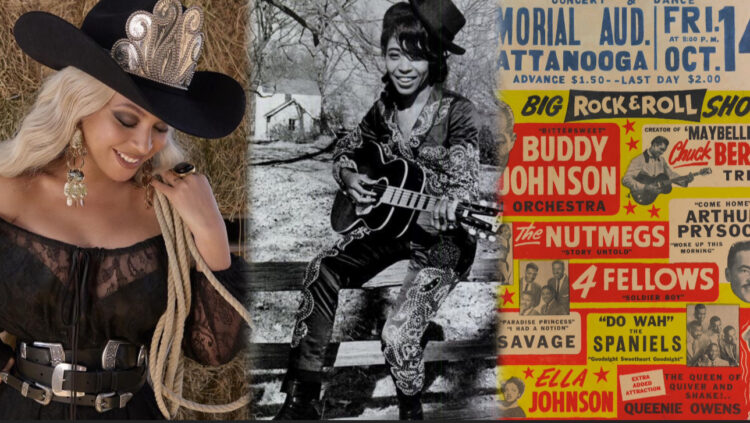The body of work that is Cowboy Carter is not only a musical experience, but a Black, country history lesson from start to finish.
Who is Linda Martell
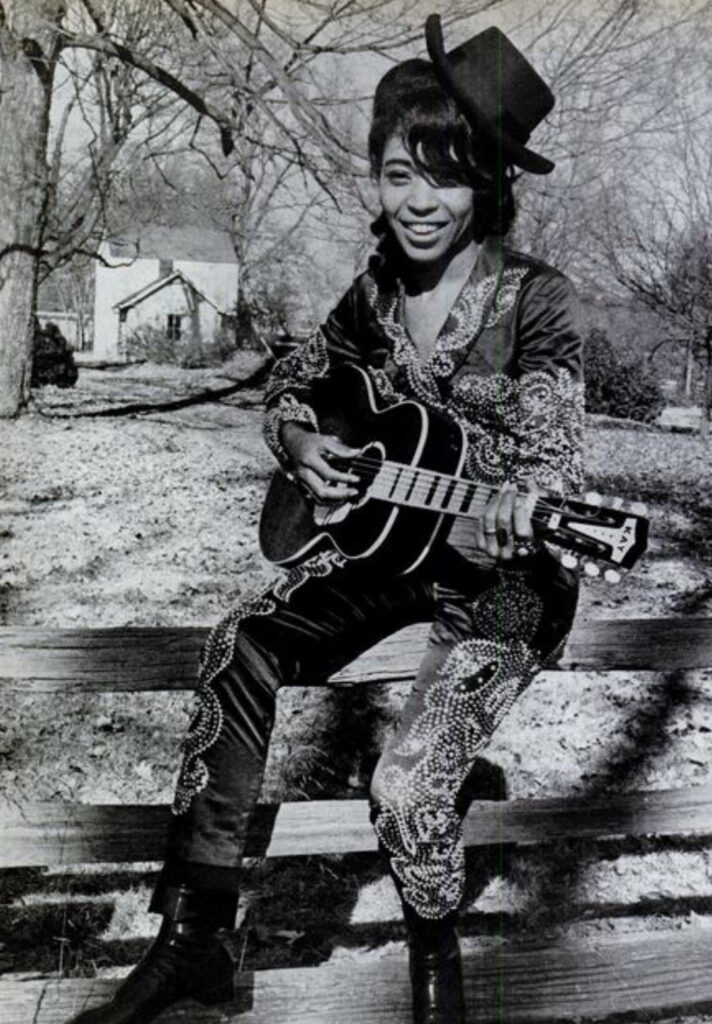
Martell appeared on two tracks: “Spaghetti” and the aptly named “The Linda Martell Show.”
Born June 4, 1941 and raised in Leesville, South Carolina she is the first Black female artist to play the Grand Ole Opry but faced discrimination throughout the course of her career.
She is considered a pioneer in African American country music singer who made significant contributions to the genre in the 1960s and 1970s.
Martell began her music career in the early 1960s and gained attention for her soulful voice and dynamic stage presence.
She signed with the Plantation Records label and released several singles, including “Color Him Father” and “Before the Next Teardrop Falls,” which became hits on the country music charts.
In 1969, Linda Martell made history by becoming the first African American woman to perform at the Grand Ole Opry, a renowned country music stage in Nashville, Tennessee.
Her performance was well-received, but she faced challenges and discrimination due to her race in the predominantly white country music industry at the time.
Despite the obstacles, Martell continued to pursue her music career, releasing albums like “Color Me Country” in 1970.
However, she eventually faced difficulties in gaining widespread recognition and support within the industry.
When one promoter for a show in Texas found out she was Black, they canceled the show.
When she was taunted for the way she pronounced words, she sought counsel from her management group — who told her to develop a thicker skin.
During her performances, Martell would be heckled and called racist names:
“A lot of times, you feel like saying, ‘OK, look here, I don’t wanna hear that. Please quit calling me names like that,’ ” she said. “But you can’t say that. You can’t say anything. All you can do is do your singing and try your best to forget about it.”
“When you’re playing to an all-white audience — because Lord Jesus, they are prejudiced — you learn to not say too much,” she said. “You can carry it a little too far if you’re correcting somebody. So you learn how not to do that.”
Beyonce paid homage to Linda
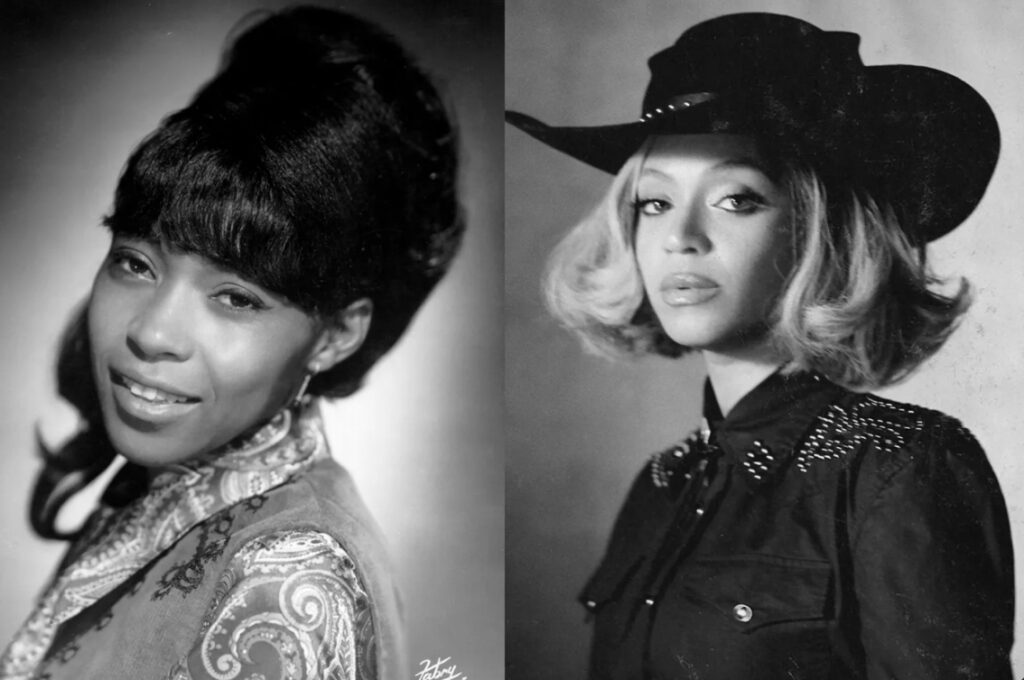
According to PEOPLE though Beyoncé’s album was released decades after Martell’s experience in country music, a similar negative experience motivated her first foray into the genre.
Cowboy Carter was “born out of an experience that I had years ago where I did not feel welcomed,” she wrote on Instagram ahead of its release.
While she didn’t share what the experience was, many fans speculated that she was referring to her performance of “Daddy Lessons” at the 2016 CMA Awards with The Chicks.
Following the show, users on social media were critical of her performance, and no portion of her segment was shown on CMA’s website or social media.
In March 2024, Beyoncé brought Martell’s name back into the limelight as she featured her on her country album. Martell appeared on two tracks: “Spaghetti” and the aptly named “The Linda Martell Show.”
In the latter song, which is just 28 seconds long, Martell speaks as if she is on a radio show introducing the next tune.
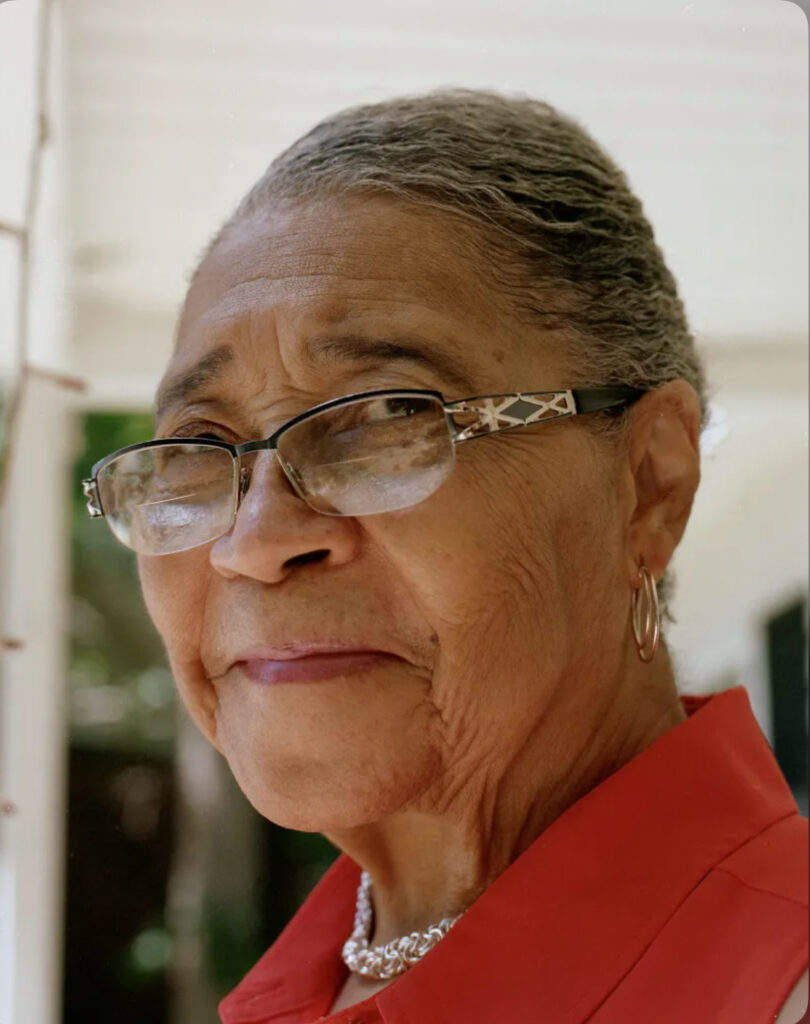
“Haha, okay, thank you so very much,” she says. “Ladies and gentlemen, this particular tune stretches across a range of genres and that’s what makes it a unique listening experience. Yes, indeed. It’s called ‘YA YA.’
More history lessons to pay attention to
The Chitlin Circuit
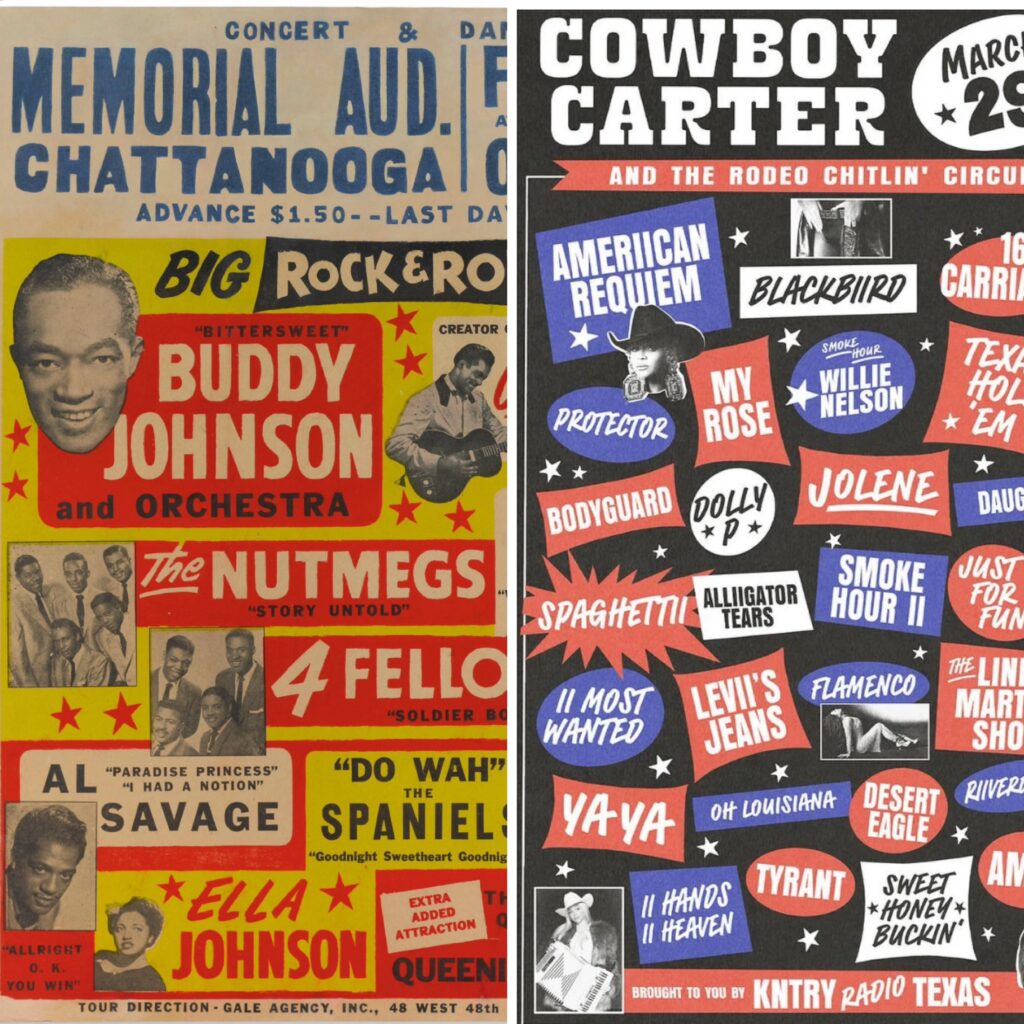
The cowboy Carter track list cover was similar to the imagery of the 1930’s ‘Chitlin Circuit’.
The chitlin circuit is a network of performance venues that primarily catered to African American artists during the era of racial segregation in the United States.
This circuit played a crucial role in the development and promotion of various genres of African American music, including blues, jazz, rhythm and blues (R&B), and soul.
The song “Blackbiird” And The Little Rock Nine
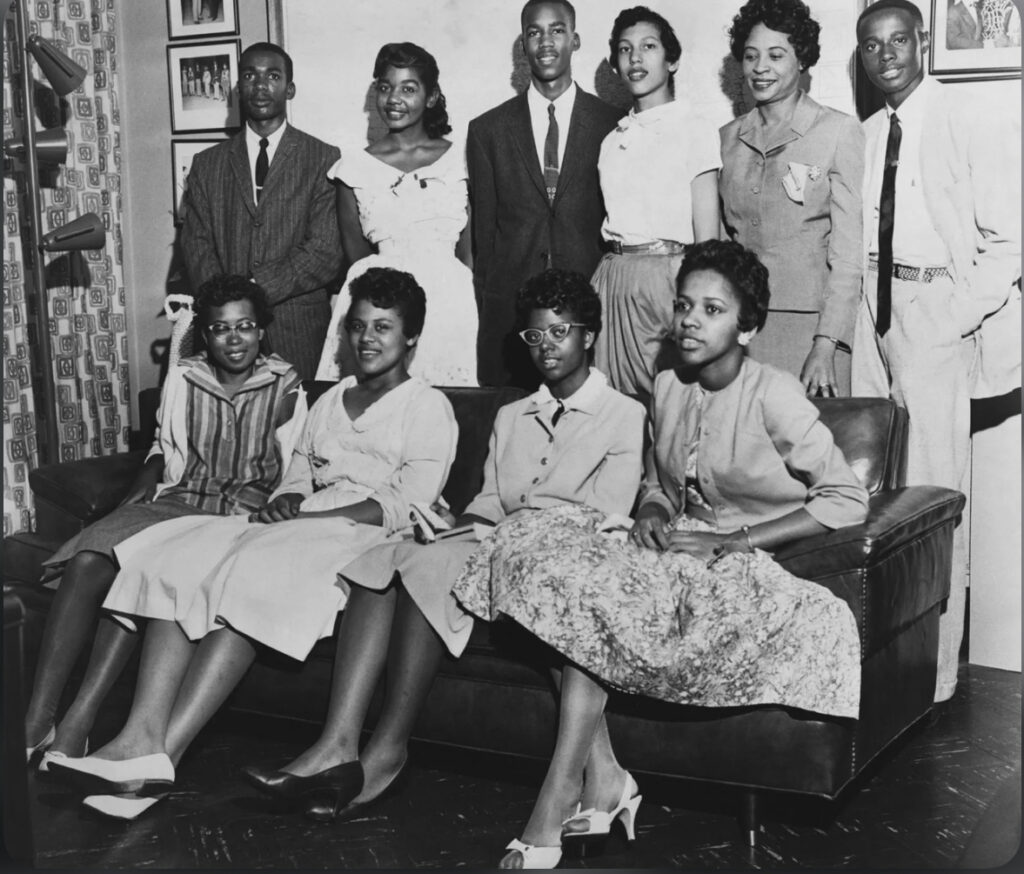 The original ‘Blackbird’ was written by Paul McCartney in honor of The Little Rock Nine a group of African American students who were enrolled in Little Rock Central High School in 1957.
The original ‘Blackbird’ was written by Paul McCartney in honor of The Little Rock Nine a group of African American students who were enrolled in Little Rock Central High School in 1957.
In September 1957, nine African American students—Ernest Green, Elizabeth Eckford, Jefferson Thomas, Terrence Roberts, Carlotta Walls LaNier, Minnijean Brown, Gloria Ray Karlmark, Thelma Mothershed, and Melba Pattillo Beals—were selected to integrate Little Rock Central High School in Arkansas that was previously segregated.
When the Little Rock Nine attempted to enter the school on September 4, 1957, they were met with violent opposition from white protesters and the Arkansas National Guard, who were called in by Governor Orval Faubus to prevent their entry.
In response to the violence and resistance, President Dwight D. Eisenhower intervened. He federalized the Arkansas National Guard and deployed U.S. Army troops to ensure the safety of the Little Rock Nine and enforce desegregation at the school.
Earnest Green’s daughter Mckenzie further explains what the song Blackbird means to her dad, herself, and the women of Little Rock:
Watch:
@kenziekeymag I cant make any promises for the mess I will be after I get to hear her version with my dad #ernestgreen #littlerocknine #littlerockarkansas #blackbird #cowboycarter #beyonce #prouddaughter #thelittlerocknine ♬ original sound – MacKenzie Green
Historical Western Films
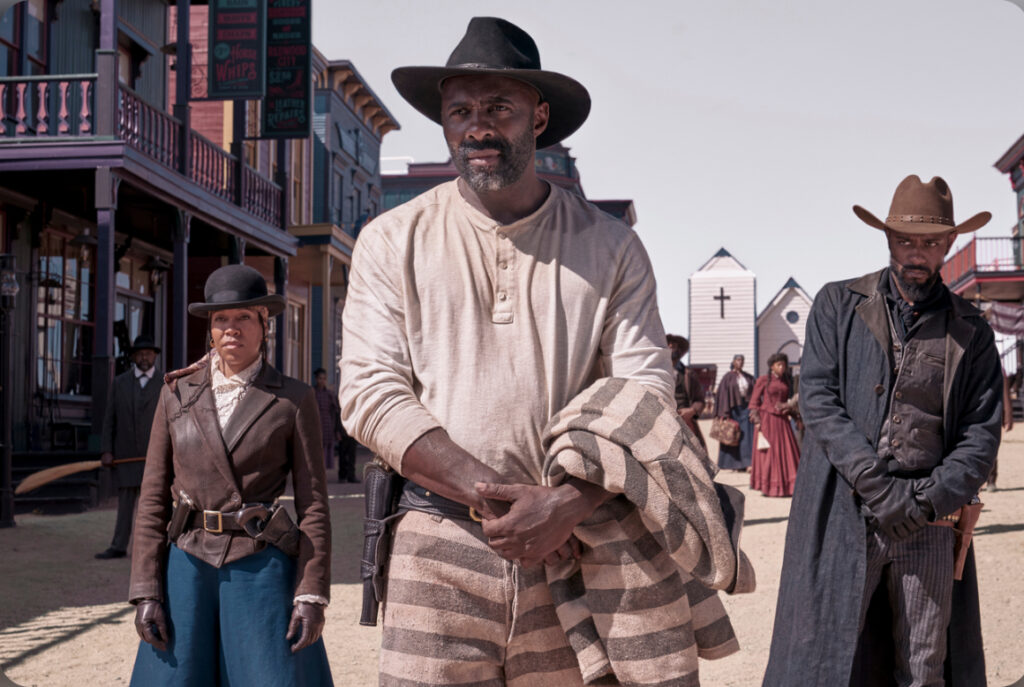
In the official press release, Beyonce gave some insight on how the project came about.
“This album took over five years,” ….“It’s been really great to have the time and the grace to be able to take my time with it. I was initially going to put ‘Cowboy Carter’ out first [before ‘Renaissance’], but with the pandemic, there was too much heaviness in the world. We wanted to dance. We deserved to dance. But I had to trust God’s timing.”
That timing also encompassed the release of additional features that influenced Beyoncé’s vision for the album, including a mix of modern Westerns and classic genre films.
The multi-hyphenate talent listed films such as “Five Fingers for Marseilles,” “Urban Cowboy,” “The Hateful Eight, “Space Cowboys,” “The Harder They Fall,” and “Killers of the Flower Moon” as movies she watched during the recording process.
Beyoncé’s Cowboy Carter character was “inspired by the original Black cowboys of the American West. The word cowboy itself was used in a derogatory way to describe the former slaves as ‘boys,’ who were the most skilled and had the hardest jobs of handling horses and cattle, alike. In destroying the negative connotation, what remains is the strength and resiliency of these men who were the true definition of Western fortitude.”
Beyoncé said,
“The joy of creating music is that there are no rules. The more I see the world evolving the more I felt a deeper connection to purity. With artificial intelligence and digital filters and programming, I wanted to go back to real instruments, and I used very old ones. I didn’t want some layers of instruments like strings, especially guitars, and organs perfectly in tune. I kept some songs raw and leaned into folk. All the sounds were so organic and human, everyday things like the wind, snaps and even the sound of birds and chickens, the sounds of nature.”
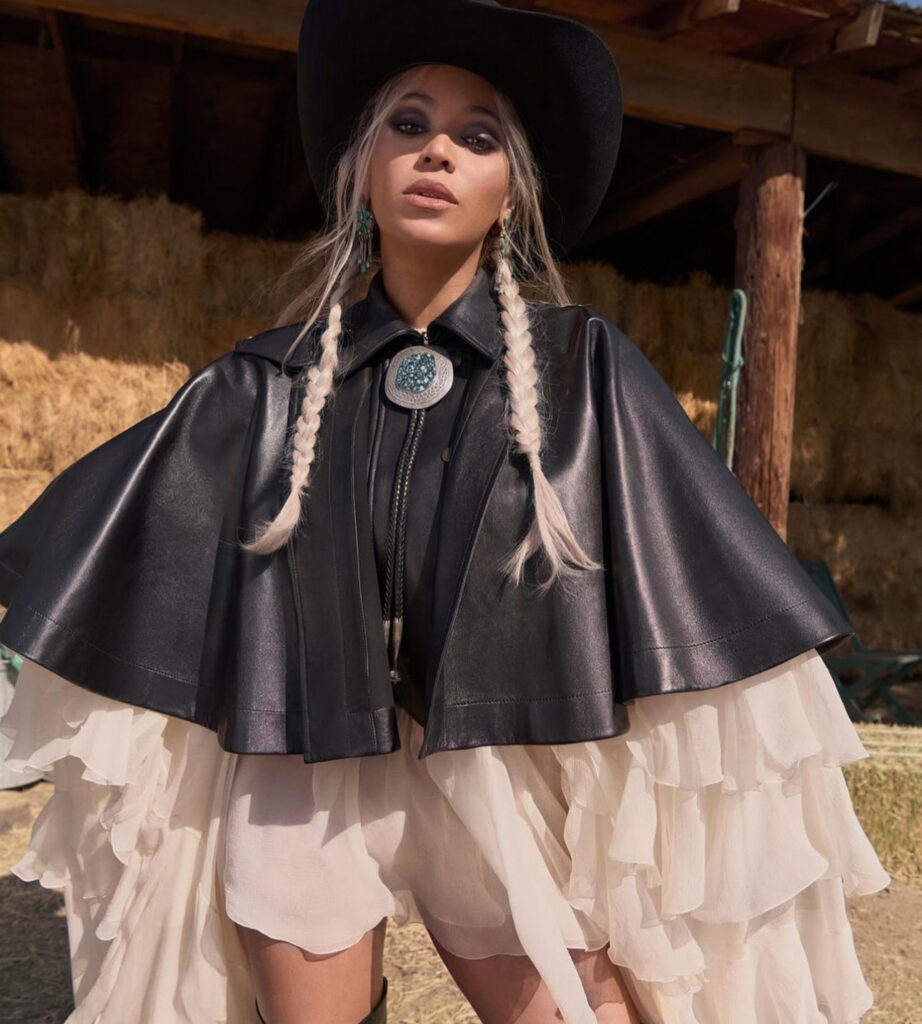
The singer-songwriter revealed that she “recorded probably 100 songs,” but only 27 made it to the final album.
“I think people are going to be surprised because I don’t think this music is what everyone expects,” she said, “but it’s the best music I’ve ever made.”


